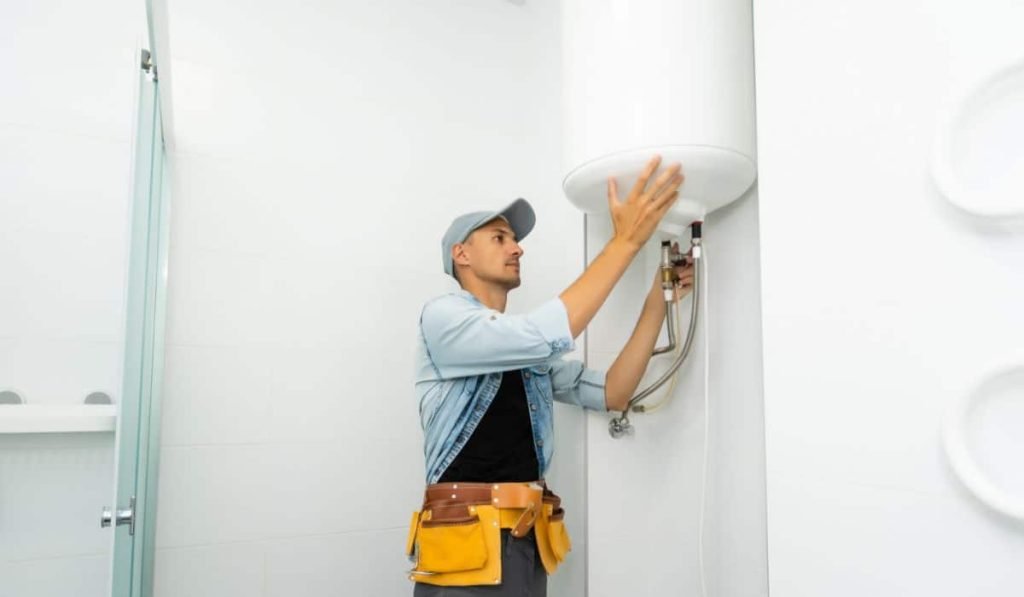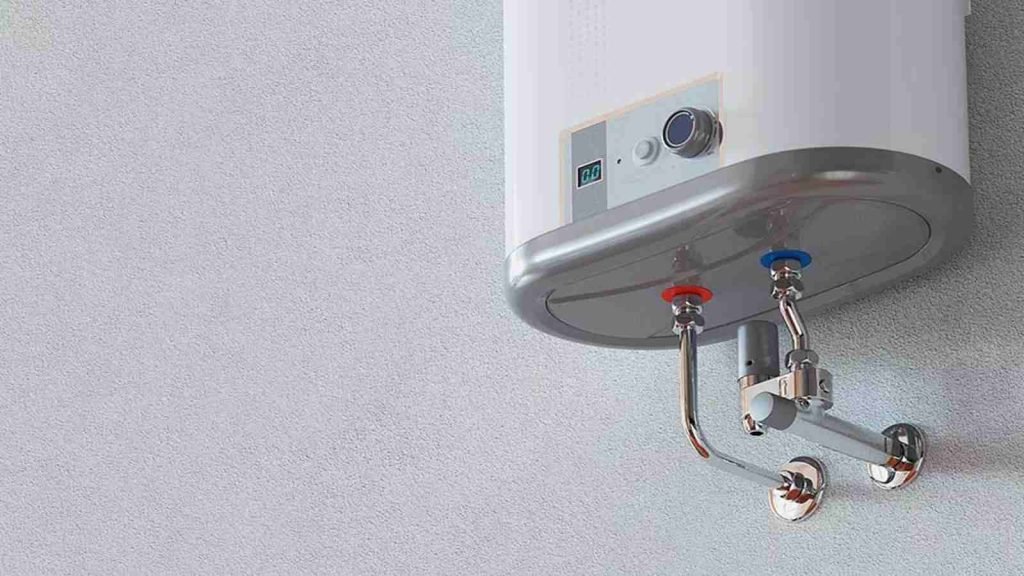Embarking on the journey of water heater timer installation requires a thoughtful exploration of its potential advantages and drawbacks. As households strive for energy efficiency and cost savings, the concept of scheduling hot water supply has gained prominence. This introduction delves into the nuanced landscape of water heater timers, elucidating how these devices can significantly reduce energy consumption, lower utility bills, and contribute to environmental sustainability. However, the discussion also acknowledges the need for a balanced perspective, considering factors like compatibility, installation challenges, and the impact on daily routines. In this exploration, we navigate the pros and cons, providing a comprehensive guide for those contemplating this transformative addition to their home systems. Navigating the landscape of water heater timer installation involves a thorough understanding of its potential impact on both financial savings and environmental responsibility. The convenience of hot water on demand needs to be weighed against the controlled energy consumption that timers offer, presenting a delicate balance between comfort and conservation. This exploration encompasses the compatibility considerations for various water heater models, potential challenges during installation, and the necessity for strategic scheduling to optimize efficiency. As we delve into the nuanced aspects of this technology, users can make informed decisions tailored to their lifestyle, ensuring a seamless integration that enhances both the functionality and eco-friendliness of their home.
Balancing Comfort and Conservation: Water Heater Timer Installation – Pros and Cons
Dive into the world of energy-efficient water heating with The Pro Plumbing! Uncover the advantages and considerations of water heater timer installation as we explore the pros and cons tailored to optimize your home’s comfort and savings.

Energy Savings: How a Water Heater Timer Can Reduce Energy Consumption
Installing a water heater timer services offers significant potential for energy savings. By programming the water heater to operate only during specific hours when hot water is needed, users can avoid unnecessary energy consumption during idle periods. This can be particularly advantageous during off-peak hours when electricity rates are typically lower. The timer ensures that the water heater heats water efficiently, reducing the overall energy demand and subsequently lowering utility bills. This proactively contributes to energy conservation efforts and aligns with the growing emphasis on sustainable and eco-friendly practices in modern households.
Cost Efficiency: Exploring the Financial Benefits of Installing a Water Heater Timer
Beyond energy savings, the financial benefits of water heater timers are noteworthy. Users stand to gain cost efficiency by strategically scheduling the operation of their water heaters. By avoiding continuous heating throughout the day, especially when hot water demand is low, households can experience a noticeable reduction in monthly utility expenses. The upfront investment in a water heater timer is often outweighed by the long-term savings achieved through reduced energy consumption. This makes it an economically sensible choice for those looking to optimize their budget while maintaining a consistent supply of hot water. The cost efficiency associated with water heater timers underscores their appeal for homeowners seeking a balance between comfort and fiscal responsibility.
Environmental Impact: The Eco-Friendly Aspects of Water Heater Timer Usage
The environmental impact of water heater timers extends beyond personal financial savings. By curbing unnecessary energy consumption, these devices contribute to overall energy conservation and a reduction in greenhouse gas emissions. Timers align with the broader goal of creating more sustainable households by promoting responsible energy use. As environmental consciousness grows, the installation of water heater timers becomes a tangible way for individuals to participate in reducing their carbon footprint and fostering a greener lifestyle.
Convenience vs. Control: Weighing the Pros and Cons of Scheduled Hot Water
While water heater timers offer energy efficiency, users must balance this against potential inconveniences. Scheduled hot water may conflict with unexpected needs for warm water outside the programmed hours. It’s crucial to consider the balance between the convenience of having hot water readily available at any time and the control gained through a programmed schedule. Users must evaluate their lifestyle and preferences to determine if the trade-off in spontaneity is worth the energy savings and financial benefits associated with a water heater timer.
Installation Challenges: Common Issues Faced When Setting Up a Water Heater Timer
The installation of a water heater timer, while generally straightforward, may pose challenges for some users. Compatibility issues with existing water heater models, electrical wiring complexities, or the need for professional assistance can impact the ease of installation. Understanding and addressing these potential challenges beforehand can ensure a smooth implementation process and prevent frustration for homeowners eager to benefit from the advantages of a water heater timer.
Extended Appliance Lifespan: How Timed Operation Can Prolong the Life of Your Water Heater
The controlled operation provided by water heater timers can contribute to the longevity of the appliance. Continuous heating puts a strain on the heating elements and other components, leading to wear and tear over time. By limiting the operation to scheduled periods, the overall stress on the water heater is reduced, potentially extending its lifespan. This consideration adds another layer of cost-effectiveness, as a longer-lasting appliance means fewer replacements and less environmental impact associated with manufacturing and disposing of old units.
Compatibility Considerations: Assessing Whether Your Water Heater Is Suitable for a Timer
Not all water heaters are compatible with timers, and it’s essential for users to assess whether their specific model can accommodate this technology. Tankless water heaters, for example, may already have built-in controls or may require specialized timers. Users must ensure that the timer selected is compatible with their water heater’s make and model to avoid potential operational issues and to maximize the benefits of timed hot water. In addressing leaking temperature and pressure relief valves in Alhambra water heaters, professional repair services offer timely solutions, while homeowners also weigh the pros and cons of water heater timer installation to enhance efficiency and control in their plumbing systems.
Optimal Usage Times: Determining the Best Schedule for Maximum Efficiency
Finding the optimal schedule for the water heater timer is crucial for maximizing energy savings. Users should consider their daily routines, peak hot water demand periods, and electricity rate structures. Programming the timer to align with periods of high demand ensures a consistent supply of hot water while still reaping the benefits of reduced energy consumption during off-peak hours. Striking the right balance between user habits and energy efficiency is key to realizing the full potential of a water heater timer.

User Experience: The Impact of Timed Hot Water on Daily Routines and Habits
The introduction of a water heater timer can influence daily routines and habits related to hot water usage. Users may need to adjust their schedules to align with the programmed heating times, and this adjustment can impact overall user experience. Understanding how the timed hot water system integrates into daily life, and potentially modifying habits to maximize efficiency, is an important aspect of the user experience with a water heater timer.
Drawbacks and Limitations: Understanding the Downsides of Water Heater Timer Installation
Despite the numerous benefits, it’s crucial to acknowledge the drawbacks and limitations associated with water heater timers. These may include the need for upfront costs, potential inconvenience due to scheduled hot water, and the requirement for careful programming to ensure consistent supply. Users should be aware of these limitations to make an informed decision about whether a water heater timer aligns with their priorities and lifestyle.
FAQ’S
Q: Will installing a water heater timer affect my hot water availability?
A: No, if properly scheduled, a water heater timer ensures hot water availability during programmed times. It’s designed to match your daily routines, providing convenience without compromising accessibility.
Q: Can I install a water heater timer on any type of water heater?
A: Compatibility varies. Tankless heaters may have built-in controls, while traditional tanks may require external timers. Check your water heater’s specifications for compatibility before installation.
Q: Are there cost savings with a water heater timer?
A: Yes, a water heater timer can significantly reduce energy bills by heating water only when needed. This results in cost savings, making the initial investment in the timer a financially sound decision in the long run.
Q: Does a water heater timer require professional installation?
A: Installation is typically straightforward and can be a DIY project. However, some users may prefer professional assistance, especially if compatibility issues or electrical complexities arise during installation.
Q: What are the environmental benefits of using a water heater timer?
A: Water heater timers contribute to energy conservation by reducing unnecessary heating, thus lowering greenhouse gas emissions. This aligns with eco-friendly practices, making timers an environmentally responsible choice for households seeking to minimize their carbon footprint.
Conclusion
In conclusion, the installation of water heater timers presents a dual-edged solution with compelling advantages and considerations. Offering substantial energy and cost savings, these devices align with environmental sustainability goals while extending the lifespan of the appliance. However, users must navigate potential inconveniences, installation challenges, and compatibility issues. Striking a balance between convenience and control becomes crucial in optimizing the benefits of timed hot water. As households increasingly seek energy-efficient and eco-friendly solutions, the pros of water heater timers often outweigh the cons, positioning them as valuable tools for those aiming to enhance both financial efficiency and environmental responsibility in their daily lives. Moreover, the financial gains from reduced utility bills underscore the long-term cost-effectiveness of water heater timers, making them an attractive investment. Despite the need for careful programming and occasional adjustments to daily routines, the positive impact on both the environment and household budgets makes these timers a noteworthy addition to modern homes. The careful consideration of compatibility and the understanding of potential challenges during installation are crucial steps in ensuring a seamless integration into existing systems. In navigating the pros and cons of water heater timers, users can find a pragmatic balance that enhances their overall quality of life while contributing to broader sustainability objectives.

